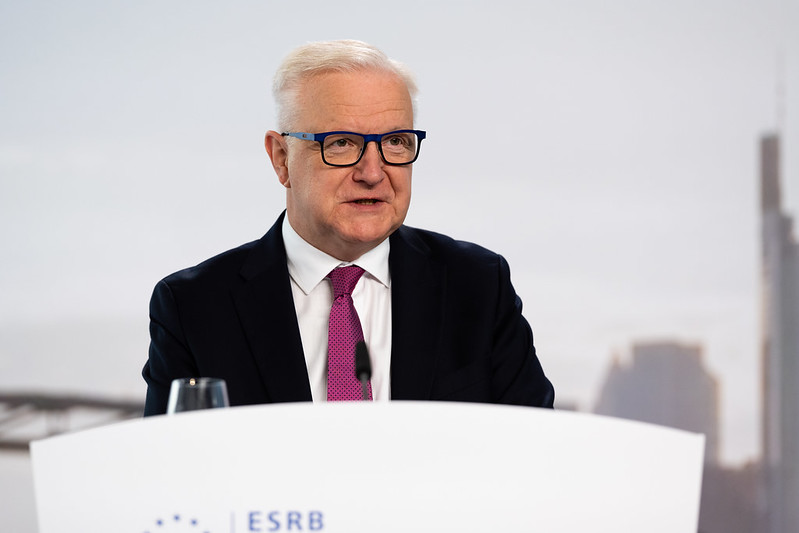By David Barwick – FRANKFURT (Econostream) – European Central Bank Governing Council member Olli Rehn on Wednesday said that euro area inflation would fall below target in the near term, but expressed confidence that it would return to 2% in the medium term, as the effects of energy prices faded and wage and employment dynamics provided underlying support.
Delivering a speech in Helsinki, Rehn, who heads the Bank of Finland, said, ‘In the short term, inflation is expected to slow below the ECB’s target, particularly due to falling energy prices – unless the Israeli-Iranian conflict leads to significant disruptions to crude oil production and a prolonged and significant increase in oil prices.’
The ECB’s June 5 decision to reduce the deposit facility rate to 2.0% was intended ‘to ensure that euro area inflation stabilises at its 2% objective over the medium term and that the economy remains on a growth path’, he said.
Rehn made clear that the policy path ahead remained highly conditional, reaffirming that the ECB would continue to decide on a data-dependent, meeting-by-meeting basis.
He warned that the outlook was subject to multiple uncertainties, especially geopolitical. ‘If the conflict in the Middle East continues, it could pose a stagflationary shock to the euro area – the risk that inflation will accelerate at the same time as growth weakens and unemployment rises,’ he said.
Still, the baseline scenario remained intact, with higher real wages and easier financing conditions supporting gradually stronger growth, he said. Fiscal policy was also playing a role, with increased defence spending expected to partly offset the negative impact of trade restrictions, especially as of 2027, he said.
Rehn noted recent market anomalies, particularly in the euro-dollar relationship. ‘The euro has strengthened against the dollar this year, even though the interest rate differential has increased in favour of the US,’ he said. This may reflect growing investor caution towards the US and a perception of the euro as a safe haven, he suggested.
‘The dollar’s dominance is likely to remain for a long time, but the development may move towards a more multipolar system,’ he said, adding that the euro could gain ground if authorities enhanced the underlying framework of the common currency.

